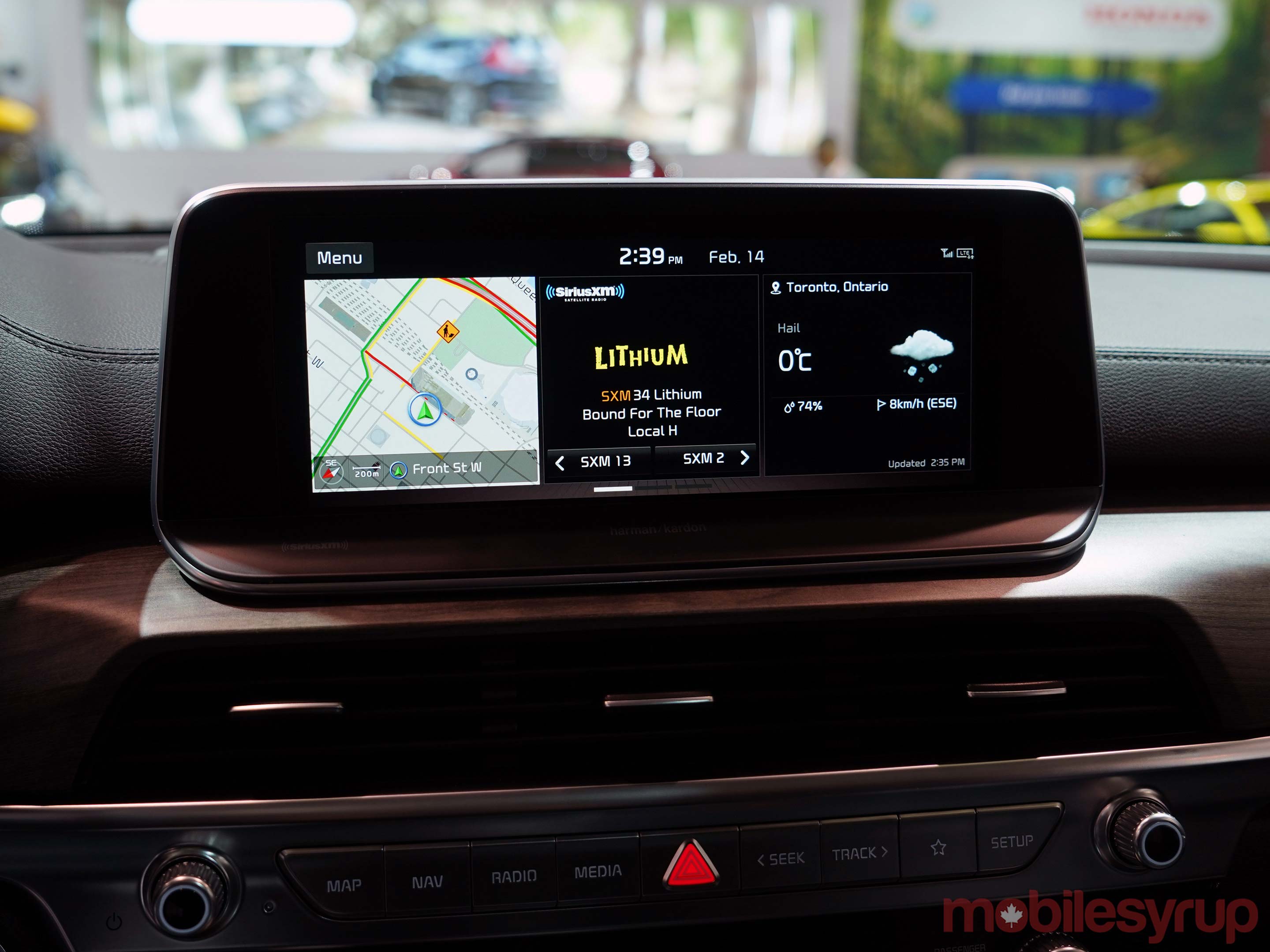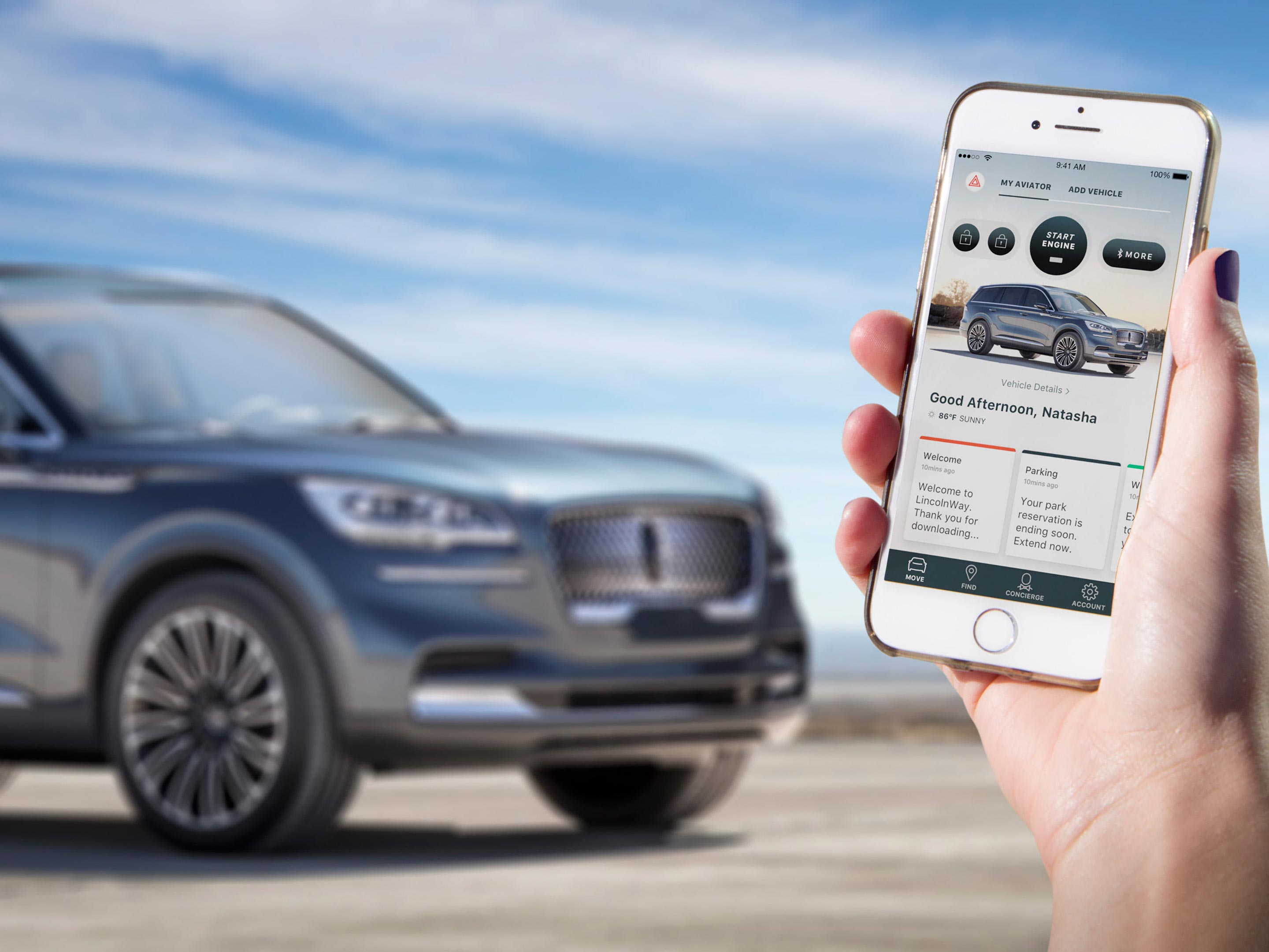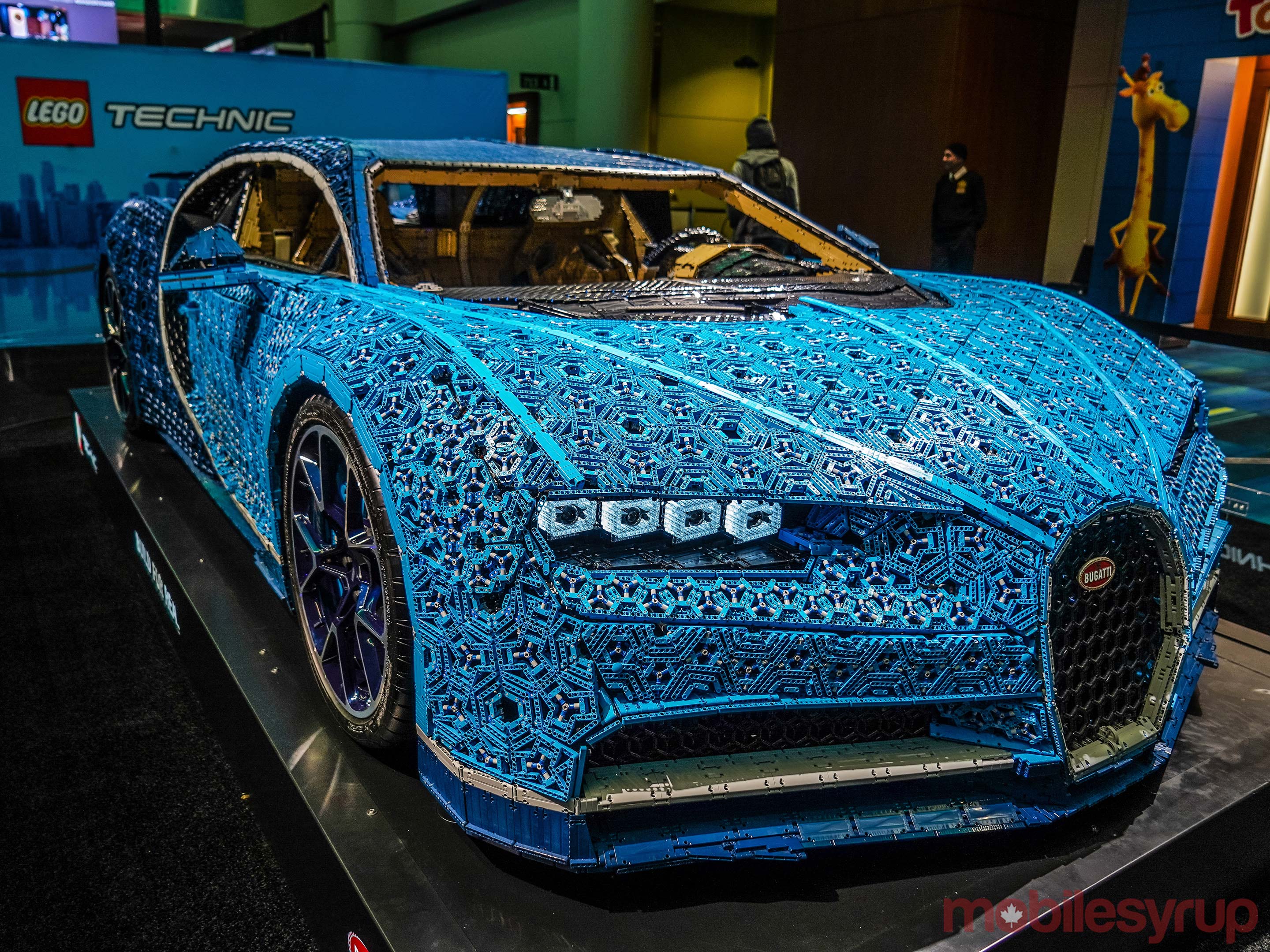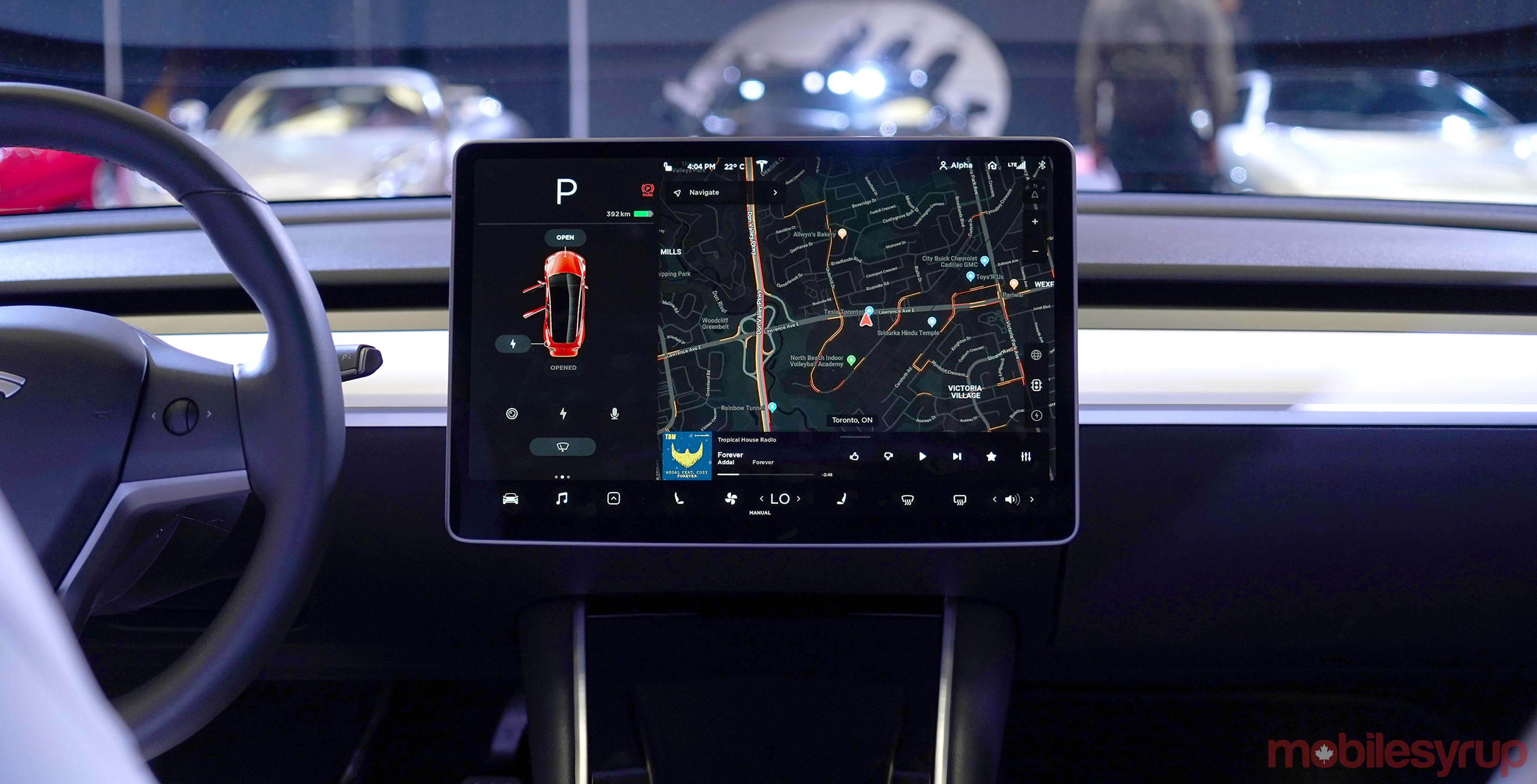
With the Canadian International Auto Show (CIAS) kicking off in Toronto, some of the latest in infotainment appears ready to go in 2019.
The last couple of years have seen a slow, but steady, change where automakers are trying to sell consumers on the technology they’re offering. Volkswagen is pushing a new modular platform, Kia thinks its Soul EV will a competitive electric car, and even Kijiji is presenting itself as a major sales platform.
Not everything everyone is showing is necessarily new, at least to discerning customers, but there is plenty that will be at this year’s show.
New systems set to debut
Mercedes-Benz will roll out its brand new MBUX system in the A-Class and GLE in Canada as early as this spring. A previous hands-on with a pre-production version showed some promise, but with a little extra polish, the system did look and feel a little better — at least from a cursory experience. A full review will drop on MobileSyrup soon.
Kia has given its UVO system a bit of a facelift, now using a wider display that can split the home screen into three sections for contextual information at all times. It will continue to run CarPlay and Android Auto the same way, only now neither platform has to necessarily dominate the whole display.
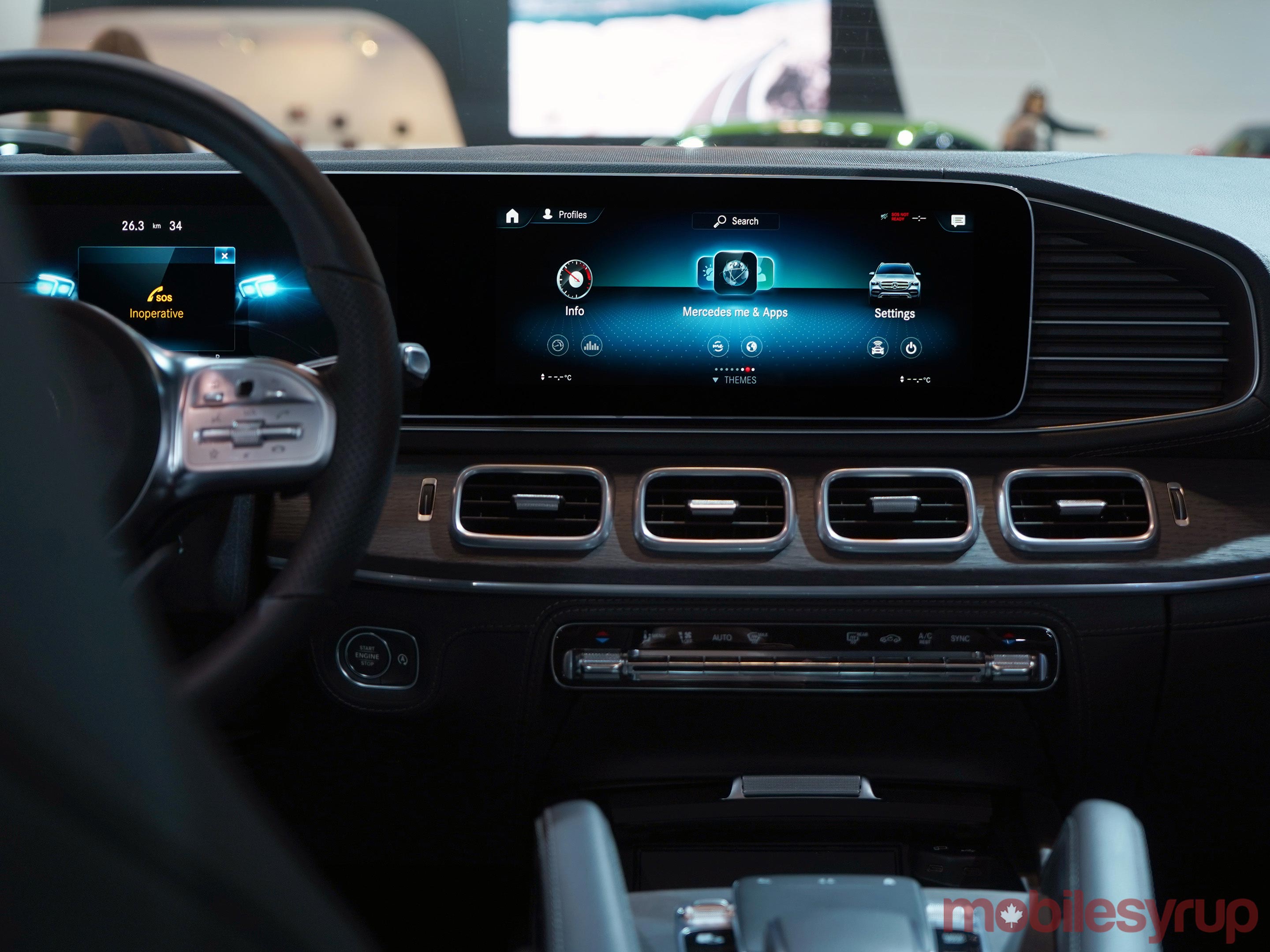
The largest of the displays is 10.25-inches, though there will be an 8-inch version as well. The 7-inch iteration is a carryover from the previous UVO system, like the one reviewed earlier. A range of vehicles will get the system, including the Soul, Stinger, Sorrento, Niro, Forte, Sedona, Rio and Optima, but check the fine print to see which trims get which display.
BMW’s iDrive 7 is already available on select vehicles, and is set to roll out on more this year. The 3 Series will introduce a new voice assistant that is supposed to be smarter and more dynamic than anything the company has previously released.
The aptly named “Intelligent Personal Assistant” is designed to an AI learning platform that knows driver preferences over time. You can even name it whatever you want, to which it will respond on demand.
For example, instead of “Hey BMW,” it could be “Hey Boo,” or “Hey Beamer.” Most of the voice-enabled features will be focused on in-car experiences, like controlling climate, seat heating, audio input and more. Saying conversational things, like “I feel tired,” or “I’m getting a little cold here,” will have a contextual impact that puts the system into action.
The demo was interesting, but it remains to be seen how the German automaker can integrate music better. There’s no word on something like Spotify integration where you can tell it what to play by voice, like you can with Alexa and Google Assistant. Ironically, Alexa could be coming in as part of this package in the future, according to the company.
Alexa in the car
That Alexa will have a presence in vehicles isn’t a surprise. Automakers have been talking about that at CES for at least two years. What is noteworthy is that they are committing to bringing the popular voice assistant to Canada.
Unfortunately, there was no actual demo to test it out, but some of the manufacturers who have embraced it in the United States, are now set to do it north of the border. Toyota announced the 2020 Tacoma, Tundra, Sequioa and 4Runner — basically the brand’s trucks — would get Alexa support by the end of this year. That’s in addition to those vehicles also getting Android Auto.
Toyota reps couldn’t confirm whether or not existing models that use CarPlay will also get a future update to include Google’s infotainment platform. Toyota’s luxury brand, Lexus, will get similar treatment, with Alexa coming to select vehicles as well.
Others, like Volkswagen, Hyundai and Ford may do the same, but did not confirm when or which models would get it first.
Lincoln turns phones into fobs
Most automakers now have apps that can communicate with the car to perform certain functions, be it remote start, unlocking doors, setting climate or sending a map destination. Lincoln is taking that further and basically treating the phone like it’s a smart fob.
Phone As A Key will be available on the 2020 Aviator, and works via the Lincoln Way app for iOS (Android and other Lincoln models will come later). It can effectively replace the physical fob completely, including the ability to open up the trunk liftgate in the back. Not to say that an actual doesn’t come with the Aviator because it does. You can use that, if you prefer.
Drivers can save up to four profiles to automatically change preferences and settings once the car is unlocked. For example, if you previously set your seat, audio playback (like, Bluetooth or USB), climate, mirrors and steering column, those will all adjust upon unlocking and entry. The app uses proximity via Bluetooth to know who is actually approaching the car, so it can work even if parked underground.
Assuming two people who have the app with profiles for the car approach at the same time, the car would retain its most recent profile until the driver manually changes it after getting in. In the event that a phone is lost or stolen, all the profiles can be wiped from that device, Lincoln reps say.
Other tidbits
The life-sized Lego Technic Bugatti will be on the show floor, and is among the most unusual vehicles to see. It does actually drive and is made up of over 1 million Lego pieces, right down to the steering wheel and outer brake pads.
The Tesla Model 3, Model S and Model X are all showcased in the exotic car section below the show floor. The large infotainment displays are functional and operational, though it wasn’t possible to try all the features, especially AutoPilot.
Montreal hosted the first Auto Show for the Canadian circuit in January, and after Toronto is done, Ottawa-Gatineau will come up next from March 21st – 24th, Vancouver from March 19th – 24th, Edmonton from April 4th – 7th, and Calgary from April 17th – 21st.
Image credit: Lincoln
MobileSyrup may earn a commission from purchases made via our links, which helps fund the journalism we provide free on our website. These links do not influence our editorial content. Support us here.

